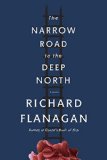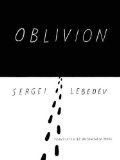Summary | Excerpt | Reading Guide | Reviews | Beyond the book | Read-Alikes | Genres & Themes | Author Bio

Moving deftly from a Japanese POW camp to contemporary Australia, this savagely beautiful novel tells a story of love, death, and family, exploring the many forms of good and evil, war and truth, guilt and transcendence.
August, 1943. In the despair of a Japanese POW camp on the Thai-Burma Death Railway, Australian surgeon Dorrigo Evans is haunted by his affair with his uncle's young wife two years earlier. His life is a daily struggle to save the men under his command from starvation, from cholera, from pitiless beatings. Until he receives a letter that will change him forever.
Moving deftly from the POW camp to contemporary Australia, from the experiences of Dorrigo and his comrades to those of the Japanese guards, this savagely beautiful novel tells a story of love, death, and family, exploring the many forms of good and evil, war and truth, guilt and transcendence, as one man comes of age, prospers, only to discover all that he has lost.
Structure aside, the story itself may be overwhelming for certain readers among whom I count myself: a look at the horrendous hardship experienced by WWII prisoners of war during the construction of the so-called "Death Railway" (or "the Line") between Thailand and Burma. Flanagan refuses to idealize heroism, exploring, instead, the idea that society defines normal people forced by circumstances to act in a certain way as "heroes." He deliberately creates a flawed protagonist in The Narrow Road...continued
Full Review
(697 words)
This review is available to non-members for a limited time. For full access,
become a member today.
(Reviewed by Alta Ifland).
 Richard Flanagan's novel The Narrow Road to the Deep North is based on a terrible chapter from WWII: the construction, under Japanese supervision, of a railway between Thailand and Burma by Allied prisoners of war and local workers. The slave labor conditions and the tortures experienced by the forced laborers claimed the lives of 13,000 Allied prisoners and 90,000 Asians.
Richard Flanagan's novel The Narrow Road to the Deep North is based on a terrible chapter from WWII: the construction, under Japanese supervision, of a railway between Thailand and Burma by Allied prisoners of war and local workers. The slave labor conditions and the tortures experienced by the forced laborers claimed the lives of 13,000 Allied prisoners and 90,000 Asians.
The prisoners were forced to march through the jungle along the railway (the "Line"), which followed the course of the river Kwai whenever possible, and labor camps were set up at various points. At the so-called Hellfire Pass, the railway had to cut through the mountains, and the laborers were forced to do the work with minimal construction equipment. As a consequence...
This "beyond the book" feature is available to non-members for a limited time. Join today for full access.

If you liked The Narrow Road to the Deep North, try these:

by Sergei Lebedev
Published 2016
A masterful novel about the search for the truth about a shadowy neighbor represents an epic attempt to rescue history from the brink of oblivion.

by Kate Atkinson
Published 2016
The stunning companion to Kate Atkinson's #1 bestseller Life After Life, "one of the best novels I've read this century" (Gillian Flynn).
It was one of the worst speeches I ever heard ... when a simple apology was all that was required.
Click Here to find out who said this, as well as discovering other famous literary quotes!